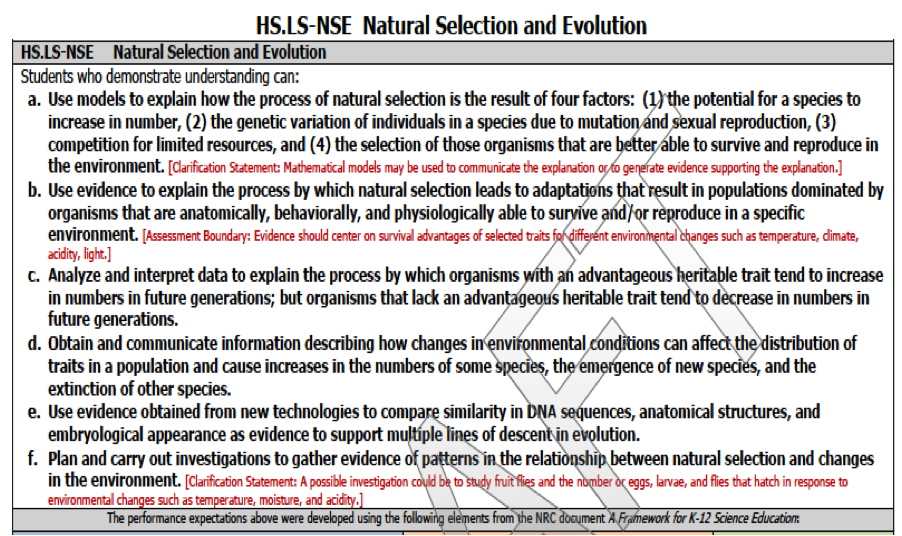 Education
Education
 Evolution
Evolution
 Free Speech
Free Speech
National Highways Are Good. How about a National Science Education?
According to the National Center for Science Education (NCSE), they’re “cringing in Kansas” over the latest skirmish in the long war over science education in public schools.
On its blog, the NCSE echoes an editorial in a Kansas paper that criticizes members of the Kansas state board of education who earlier criticized the Next Generation Science Standards (NGSS), a set of proposed state science standards from the National Academies of Science, for its one-sided presentation of evolution.
Should Kansans “cringe” over official criticism of the NGSS? No, and here’s why.
Once, K-12 education was principally a local concern. For years, the states would each write their own K-12 subject-matter standards. So teachers in different districts would teach curricula aligned to differing state standards. Suffice it to say, such diversity in K-12 education has its virtues, not least of which is the freedom of parents to better guide the development of their own children.
But with the federal government’s No Child Left Behind and its Race to the Top, K-12 standards development has gone interstate under the strong influence of national interest groups. Recently, math and English/literacy standards, the “Common Core,” were unified, disseminated and implemented nationally. Science is next.
The resurgent trend toward nationalization is not exactly uncontroversial. (Obamacare, anyone?) But not all nationalization is bad. Interstate travel is a Constitutional right furthered by the interstate highway system, a common good. I don’t miss striking west on the Oregon Trail by covered wagon.
Uniformity in science is not a common good, however. It is not like interstate highways. There is room for rational disagreement in science. Only masochists prefer covered wagons.
Now, should students know that there’s room for rational disagreement in science, and learn how to disagree with one another rationally and scientifically? According to the heads behind the NGSS, no they shouldn’t.
In science education theory, “inquiry” is often used as shorthand for the idea that science texts, like other texts, can be historicized, interrogated, and treated skeptically. Authors of science texts, like other authors, are flesh and blood. Authorial motive and intent can be discerned, claims tested, no matter how canonical the author, no matter how respected the claim.
The NGSS pay homage to the now-ascendant pedagogy of “inquiry.” Words like “critique” and “evaluate” and “argue” are sprinkled liberally throughout the 87-page document. But this merely pays lip service to the idea, for students are not tested on their ability to inquire into the standard claims of the scientific orthodoxy. Rather, like catechesis on the Animal Farm, these standards only test how well students support the orthodoxy.
Here, for example, is the “performance expectation” portion of the NGSS high school standard on natural selection and evolution.

If the NGSS writers were serious about teaching inquiry in science class, they would not expect students to, for example, “explain the process by which natural selection leads to adaptations.” Instead, they would expect students to use evidence to argue two sides of the proposition, even if only to see the orthodox view more clearly. In this iron-sharpens-iron spirit, education theorist J.S. Mill said “he who knows only his own side of the case knows little of that.”
Although the NGSS are still in development, in its current form it basically asks high school students to throw in behind one side of the controversy within the expert community over the causal power of natural selection. And then the NGSS asks teachers to grade students on their respectful complicity.
In the cynical film Thank You for Smoking, the son of a tobacco lobbyist asks his dad for help in writing a school paper on “Why Is American government the Best Government in the World?” Incredulous, the lobbyist asks his son, “Are you familiar with the term B.S.?” and then tells him why with a question like that “you can write whatever you want.”
To use the good name of science to push one-sided thinking on kids at the local level is offense enough. To do it on a national scale is, well, something else. The independent Jayhawk mind has every right to push back.
